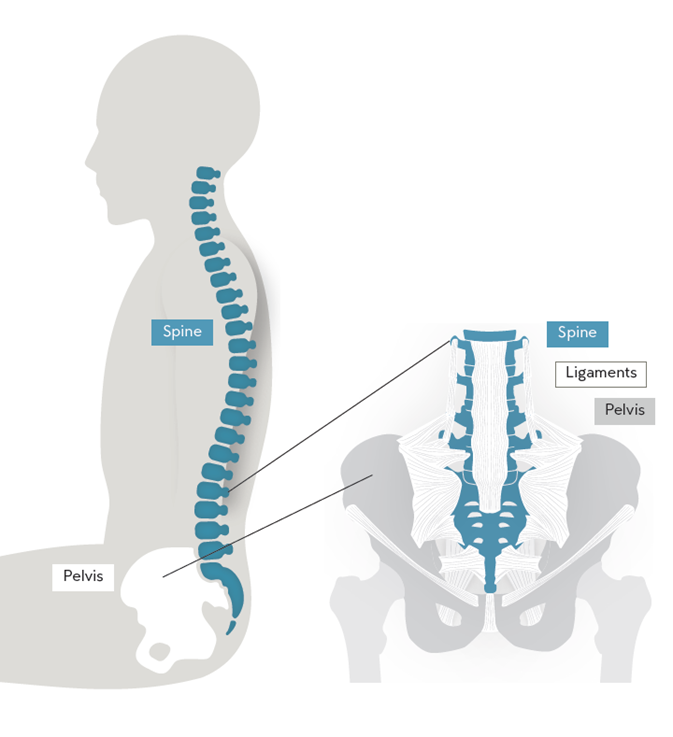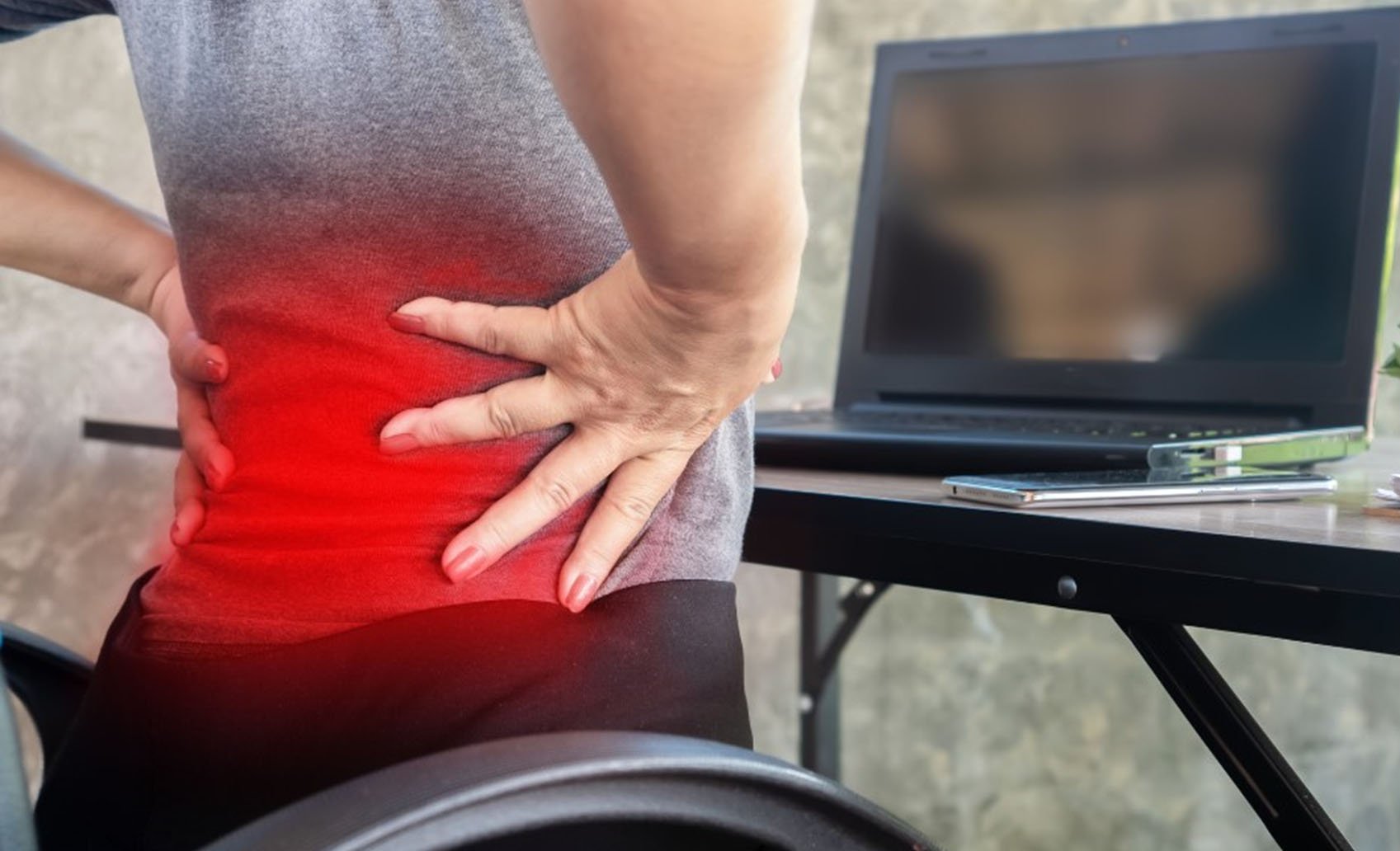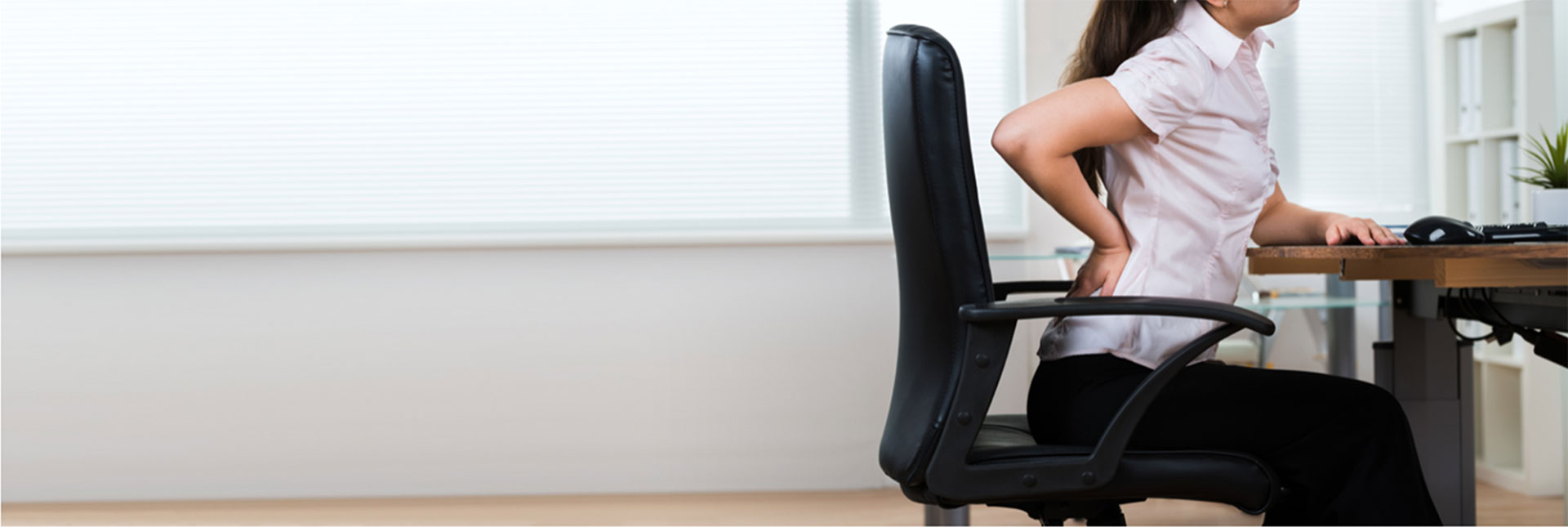Today we will answer an important question in the world of ergonomic office chair design: what is the optimal support for our sit? What kind of support will encourage your best posture? For years, the thinking has been that lumbar support is best, yet this is simply not biomechanically true. Instead, it turns out that the angle of the pelvis is key to the position of the spine. Today we will discuss the science of sitting well and explore why this is true.
Understanding The Benefits and Science of Good Posture
Let’s take a moment to understand the benefits of good posture and what it takes to sit well. The spine’s best posture is a natural S-curve. When we sit or stand with proper posture, the body is helped on so many levels. We’re not only more productive, but we also simply feel better. Proper posture brings a wealth of benefits:
Less Pain: Good posture reduces the risk of you experiencing musculoskeletal issues like back and neck pain.
Better Breathing and Circulation: Sitting well opens up your chest cavity, improving your breathing and blood flow.
Improved Digestion: It helps you digest your food better and can even help you avoid issues like acid reflux.
Better Mood and Confidence: It can help your self-confidence and give you a better outlook and mood.
Increased Productivity: Good posture keeps you alert and focused, so you can concentrate on your work and get more done.
Long-Term Health: And the big one! Sitting well helps you maintain a healthy spine and can greatly improve your health and well-being. It also means you may avoid the consequences of painful degenerative conditions caused by poor posture.
Good Posture is Tricky
So how do we achieve and hold good posture?
Unfortunately, most of us don’t sit very well. Even if we do manage to sit up straight and properly, most of us don’t hold this good posture very long. After a few minutes of sitting, we get fatigued (or we get on our phones!) and our posture becomes more of a C-curve, hunched over. It has long been thought that by supporting the lumbar region, we had the solution for this dilemma. That is why it has been the focal point of office chair design for so long.

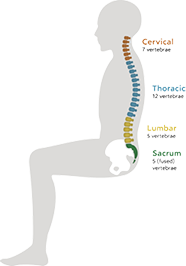
The Problem with Lumbar Support
The lumbar region (or lower back) is the lower part of the spine, which consists of five vertebrae. It's a critical area because it naturally curves inward (lordotic curve) and bears much of the body's weight while sitting. Lumbar support is designed to fill the gap between the chair and the lower back. But is this the best place to hold us in a proper sit? The thinking has been that this will help align the spine, preventing slouching. The problem is: how long can you hold this posture? Unfortunately, not very long.
The Better Solution.
The Science Behind Pelvis Support
Although lumbar support seems to be the proper place for support, there is a better solution: PELVIS SUPPORT. Pushing on the lumbar region of your spine isn’t complete because it doesn’t consider the pelvis and how it is positioned.
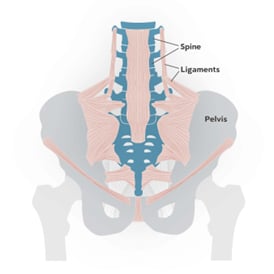
There are several compelling reasons:
Spine-Pelvis Connection: The pelvis is connected to the spine with multiple ligaments. As a result, the angle of the pelvis determines the position of the spine. When left unsupported the pelvis inevitably rolls back, resulting in a slouched C-curve of the spine. When the pelvis is supported in a more upright position, the spine follows. Supporting the pelvis is the key to maintaining better posture in sitting.
Natural S-Curve: Remember all those benefits to good posture? That takes getting your posture into its natural S-curve state. This is exactly what pelvis support gives you – it encourages the S-curve in the spine and lessens the pressure on the lumbar vertebrae.
Improved Blood Circulation: By supporting the pelvis, blood circulation to the lower extremities can improve, reducing the risk of numbness and discomfort.
Reduced Pressure Points: Pelvis support aligns the spine, reducing disc pressure, especially in the lower back.
The Bottom Line – Pelvis Support Hits You At The Foundation
Pelvis support is based on the principle that the pelvis acts as the foundation of our spine. By providing solid support to the pelvis, the entire spinal column benefits. This approach focuses on maintaining the natural alignment of the lumbar spine and lessens the stress and pressure placed on individual vertebrae.
Pelvis support is simply better placement at the foundation of your spine for a proper sit.
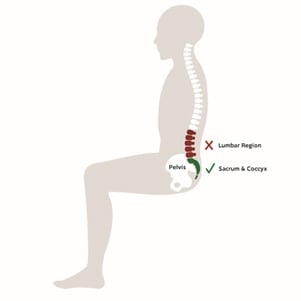
Investing In A Quality, Ergonomic Chair
The ideal chair is one that offers pelvis support. This promotes good posture, provides adequate support, and keeps you comfortable throughout your workday. Pelvis support is the better choice for your spine's health and overall comfort. The benefits extend beyond the office. It's about cultivating a healthier, more comfortable, and productive work environment. Sitting well and maintaining good posture is doable. It simply requires awareness and the right tools, such as an ergonomic chair designed to support your spine properly. By making this conscious effort, you can unlock a world of benefits.
References:
1. Harrison, D. D., Harrison, S. O., Croft, A. C., Harrison, D. E., & Troyanovich, S. J. (1999). Sitting biomechanics part I: review of the literature. Journal of manipulative and physiological therapeutics, 22(9), 594-609.
2. Endo, K., Suzuki, H., Nishimura, H., Tanaka, H., Shishido, T., & Yamamoto, K. (2012). Sagittal lumbar and pelvic alignment in the standing and sitting positions. Journal of Orthopaedic Science, 17, 682-686.
3. Andersson et al. (1979), “The influence of backrest inclination and lumbar support on the lumbar lordosis in sitting,” Spine.
4. Grieco et al. (1986), “Sitting posture: An old problem and a new one,” Ergonomics.
Recent Post

Anthros Decompress Mode: A New Way to Sit, Move, and Recover
December 23, 2025Adding a cushion to your office or gaming chair...
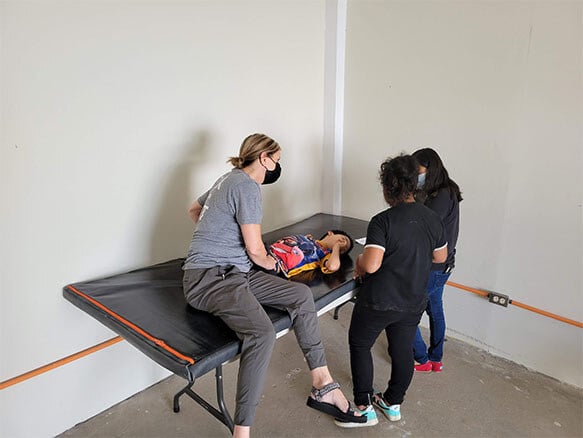
Four Lessons About Seating Everyone Can Learn from Wheelchair Users
September 18, 2025Working with wheelchair users has been an...







